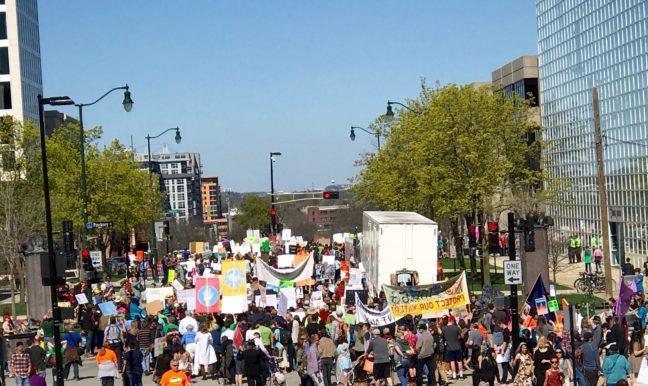In 1960, Howard Zinn published a piece for the New York Times book review that reflected on his role in the world as a historian and, more importantly, as a citizen. Zinn, the leftist historian, activist, professor, among many other lofty and praiseworthy attributes, bemoaned the stuffy and often “apolitical” nature of his profession. He offered a new age solution of the citizen historian; one who not only occupies the past but recognizes and addresses the suffering and sorrow of the present and of the looming future.
By building upon the framework Zinn constructed a half-century ago, it’s possible to find light and hope in the world as we all collectively take a deep breath and ready ourselves for another semester and year, together.
Zinn approached the idea that the historian needs not to ask the question, “Who was guilty then?” — rather they should ask, “What is our responsibility now?” This reframing of “what can we do now?” advocates a style of critical thinking that manifests into a broader call to action, transcends the standard deviation the historian has always dutifully occupied and ultimately pushes them into the present.
Yet if the role of the historian is to push boundaries and to become a politically charged activist citizen, what are the roles of the chemist? The journalist? Environmentalist? What about the pianist, the engineer, the photographer? Are their roles routed solely in their educational tracks, relegating them to fit cleanly within their job descriptions?
I would say no.
Resistance won’t end with International Women’s Day: Panelists encourage student, political activism
Throughout 2017, the country was forced to take a stand against the tide of emboldened bigotry given light by and legitimized by the current administration. It became clear the problem wasn’t just some vague and opaque hate-filled rhetoric existing solely within chat rooms online. Rather, millions support the far-right pendulum swing that brought with it white nationalism, xenophobia, sexism and a slew of other hate-filled pollutants.
For many who have traditionally avoided politics, or who have jobs that don’t require them to stay up to date with the latest deregulations, vile hate spread by leaders of the country may seem like a tough opponent.
In Zinn’s essay, he asks this very question, pondering: “How free is any man to change the world in which he lives?” And the answer is remarkably simple: by working together.
This past year, I was lucky enough to partake in demonstrations throughout Madison, ranging from the Women’s March to a rally for disinvesting in fossil fuels. As thousands of us marched and chanted together in acts of solidarity and the crowd fused together, we effectively escaped the paradigm of our educational or vocational backgrounds, unifying in a powerful current of peaceful dissent.
I’m finding more often than not, my serious conversations with groups of friends are political, driven by a desire to move forward and create positive change supporting the very basic human rights that are being decimated by the current administration.
This transcendence of one’s career pushes against the barriers and boundaries between career and society that have long existed due to abundantly inept attitudes of not being interested in politics and policy, carried out by seemingly “apolitical” industries.
But amalgamating different livelihoods or educational interests under the banner of resistance, or general politicization is vital and important for all occupations since politics itself affects even the most apolitical or uninterested.
Just because one’s job doesn’t directly tie into politics doesn’t mean they shouldn’t care or be aware of what’s going on — to think otherwise is a folly and is dangerous. President Donald Trump’s diabolical lust for slimming the federal budget to anorexic proportions affects all sectors of industry, not just the political bureaucracy, or the more politically inclined professions.
Think of the landscape painter who wishes for federal support on an upcoming project. Under Trump’s vision, there would be no funding to find, as he has suggested eliminating the National Endowment for the Arts altogether. Similarly, think of the climate scientist, unable to report their findings and data due to Trump’s unhinged acts of circumscription, censorship and unethical, inexorable crusades against science, all in attempts to undo anything positive former President Barack Obama laid a finger on.
Breaking out from the entrapment of the technical job descriptive minutia that defines one’s role in society is necessary, not only because of the individual benefit of being involved and aware of the government’s increasing atrocities but also because of the whole and the collective urgency in doing so. The ripples carried out by this administration are affecting everyone, irrespective of job or interest.
Trump’s racist, hurtful goals ripple out, touching every aspect of society. It’s imperative for everyone ranging from the political junkie to the uninterested to unify in the goal of dismantling the leviathan of destruction being carried out on the republic.
And, as Zinn hopefully declared, “We don’t have to engage in grand, heroic actions to participate in the process of change. Small acts, when multiplied by millions of people, can transform the world.”
Adam Ramer ([email protected]) is a junior majoring in history and political science.














